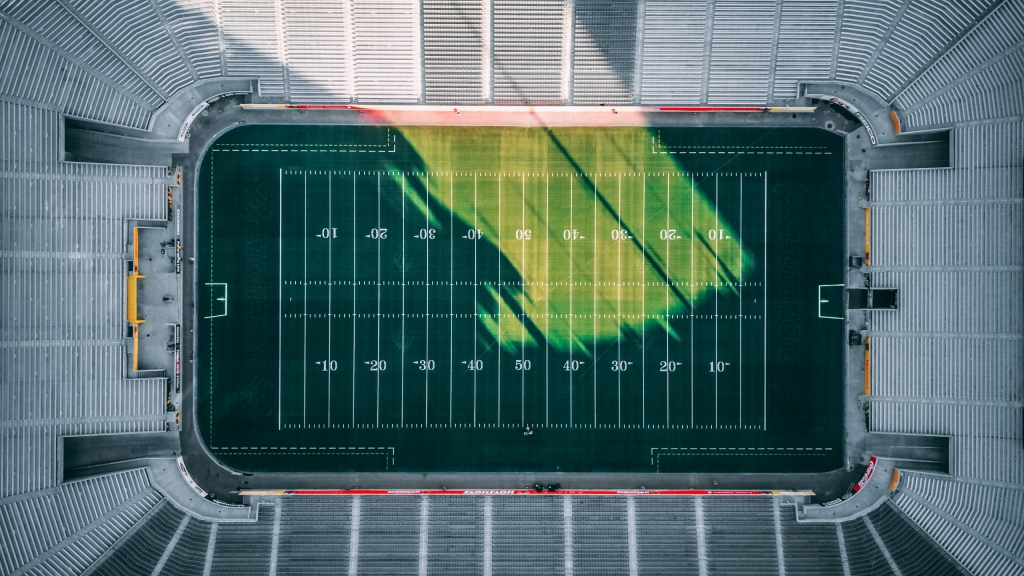Judge: Case “vividly points to the need for class treatment.”

Football fans have secured class certification of their lawsuit claiming that they were charged inflated prices to watch games due to anticompetitive telecast licensing agreements the NFL has maintained for years with DirecTV in one and CBS and Fox in another. These interlocking agreements violate Sections 1 and 2 of the Sherman Act, the fans allege.
U.S. Judge Philip S. Gutierrez rejected the defendants’ arguments against class treatment, agreeing with the fans that it’s “the only realistic way” for members to get relief given the high litigation costs and low individual damages. The case “vividly points to the need for class treatment,” according to the judge.
The NFL’s agreement with CBS and Fox allows them to coordinate and create a single telecast for every Sunday afternoon NFL game and broadcast only a number of games for free. Under its agreement, DirecTV obtained all of the live telecasts produced by CBS and Fox and bundled them into the “NFL Sunday Ticket” subscription package. Non-subscribers can only view a limited number of local games each Sunday, but subscribers can view both local and out-of-market games. “The rub,” Judge Gutierrez explained, “is that fans who want to watch out-of-market games must choose either Sunday Ticket or nothing – they cannot, for example, purchase out-of-market games individually or by team.”
Without these agreements, the plaintiffs argue, telecasts solely available on NFL Sunday Ticket would be available through other channels, resulting in more telecasts, greater access, and lower prices.
Plaintiffs proposed two classes: one for commercial and the other for residential subscribers with the relevant timeframe starting in 2011. They want damages for overcharges, declaratory relief, and an injunction restraining the NFL defendants from continuing their alleged anti-competitive conduct.
Predominance
The court reviewed the purported class action through the lens of Federal Rule 23(b)(3). The predominance requirement in the rule requires the existence of questions of law and fact common to all class members. Rule 23(a) requires these issues to be determinable in one swipe. Plaintiffs must also show that all class members suffered damages due to the same alleged misconduct. That said, a showing that members experienced individual damages doesn’t by itself defeat certification; plaintiffs just need to show that damages tied to their allegations can be determined “without excessive difficulty,” the judge explained.
Judge Gutierrez found the plaintiffs sufficiently proved that an antitrust violation, antitrust impact, and damages are common questions plaintiffs can establish through a common body of evidence.
To demonstrate that class-wide impact and damages can be proven, a plaintiffs’ expert created a “College Football But-For World,” a simulation based on collegiate games. “That simulated world shows that the twelve or so Sunday afternoon out-of-market NFL games currently available only through Sunday Ticket would likely be carried on the same available traditional television networks and basic cable networks that carry college football …,” the judge explained. “And because there are relatively few NFL games compared to the number of college football games shown on Saturdays, all NFL telecasts would be expected to be available for consumers of those networks …” The expert calculated the overcharges to be the amount each class member paid for Sunday Ticket, with some market adjustments.
The NFL and the media companies countered that damages cannot be proven through class-wide evidence because many class members would be worse off in the “but-for worlds” and identifying them would require individual trials. The court disagreed, saying even with some differences, all members of the class suffered some injury according to the models. “Plaintiffs have offered class-wide methods for calculating damages in the form of applying a uniform reduction to the Sunday Ticket prices that class members paid.” While the defendants can argue that the models do not “in fact” prove damages to the class, that would require the court to ignore the key question: whether the models were “capable” of proving damages.
The court also agreed that class treatment is the only realistic path for plaintiffs. The “costs and complexities of prosecuting individual antitrust claims would likely dwarf the damages that residential or commercial class members could individually receive, making it unlikely that Plaintiffs would pursue individual claims.”
Judge Gutierrez granted the plaintiffs’ request for an injunction, too, because it would benefit all members who are paying inflated prices for out-of-market games. Without the defendants’ anticompetitive restraints, the plaintiffs argue they would have had more choices at lower prices.
The defendants argued against an injunction because any such relief would be moot by the time the litigation ends. They said the NFL’s exclusive agreement with DirectTV will have expired and most of the members will no longer have subscribed to Sunday Ticket. Calling this argument “myopic and unconvincing,” Judge Gutierrez wrote that the antitrust behavior continues to this day and it is likely to continue via another outlet when the current agreements expire. An injunction ending the alleged restraints would benefit the entire class of football-viewing members, the court determined.
The order was handed down on Feb. 7, 2023. In re National Football League’s Sunday Ticket Antitrust Litigation, No. ML 15-2668 PSG (JEMx), C.D. Calif.
